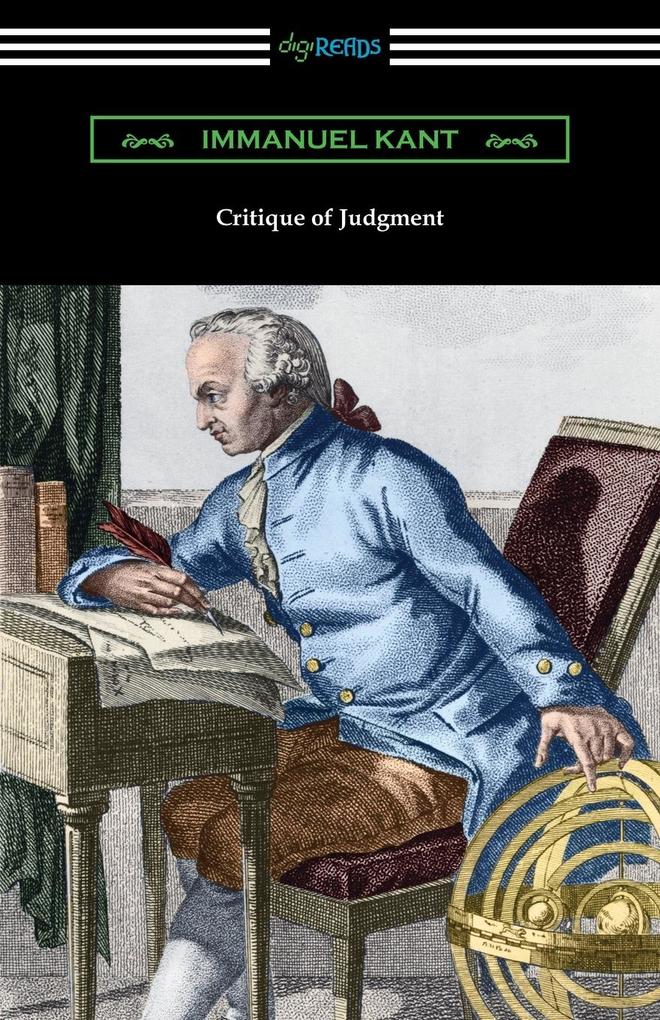
Zustellung: Mo, 06.01. - Do, 09.01.25
Versand in 6 Tagen
VersandkostenfreiBestellen & in Filiale abholen:
German philosopher and influential 18th century late Enlightenment thinker Immanuel Kant wrote "Critique of Judgment" in 1790 to solidify his ideas on aesthetics. Often referred to as the "third critique", it follows Kant's "Critique of Pure Reason," published in 1781, and "Critique of Practical Reason", published in 1788 and completes his "Critical" project. Divided into two sections, one on aesthetic judgment and the other on teleological judgment, "Critique of Judgment" proceeds to analyze the human experience of the beautiful and the sublime. Kant explores a myriad of factors that determine aesthetics: from the effect of art and nature, to the role that human imagination plays, from the objectivity of taste, to the limits of representation. He continues with the connection of aesthetic with morality, disinterestedness, and originality. In the second section, he explores teleological judgments, or judging things according to their ends, and posits that man is the ultimate end, and all forms of nature and beauty exist for the purpose of their connection to mankind. Kant had a profound impact on the artists, authors, and other philosophers of both the classical and romantic periods, establishing in his final "Critique" a milestone in critical theory and philosophy. This edition is printed on premium acid-free paper.
Produktdetails
Erscheinungsdatum
19. Dezember 2019
Sprache
englisch
Seitenanzahl
278
Autor/Autorin
Immanuel Kant
Verlag/Hersteller
Produktart
kartoniert
Gewicht
396 g
Größe (L/B/H)
216/140/17 mm
ISBN
9781420965056
Entdecken Sie mehr
Bewertungen
0 Bewertungen
Es wurden noch keine Bewertungen abgegeben. Schreiben Sie die erste Bewertung zu "Critique of Judgment" und helfen Sie damit anderen bei der Kaufentscheidung.









